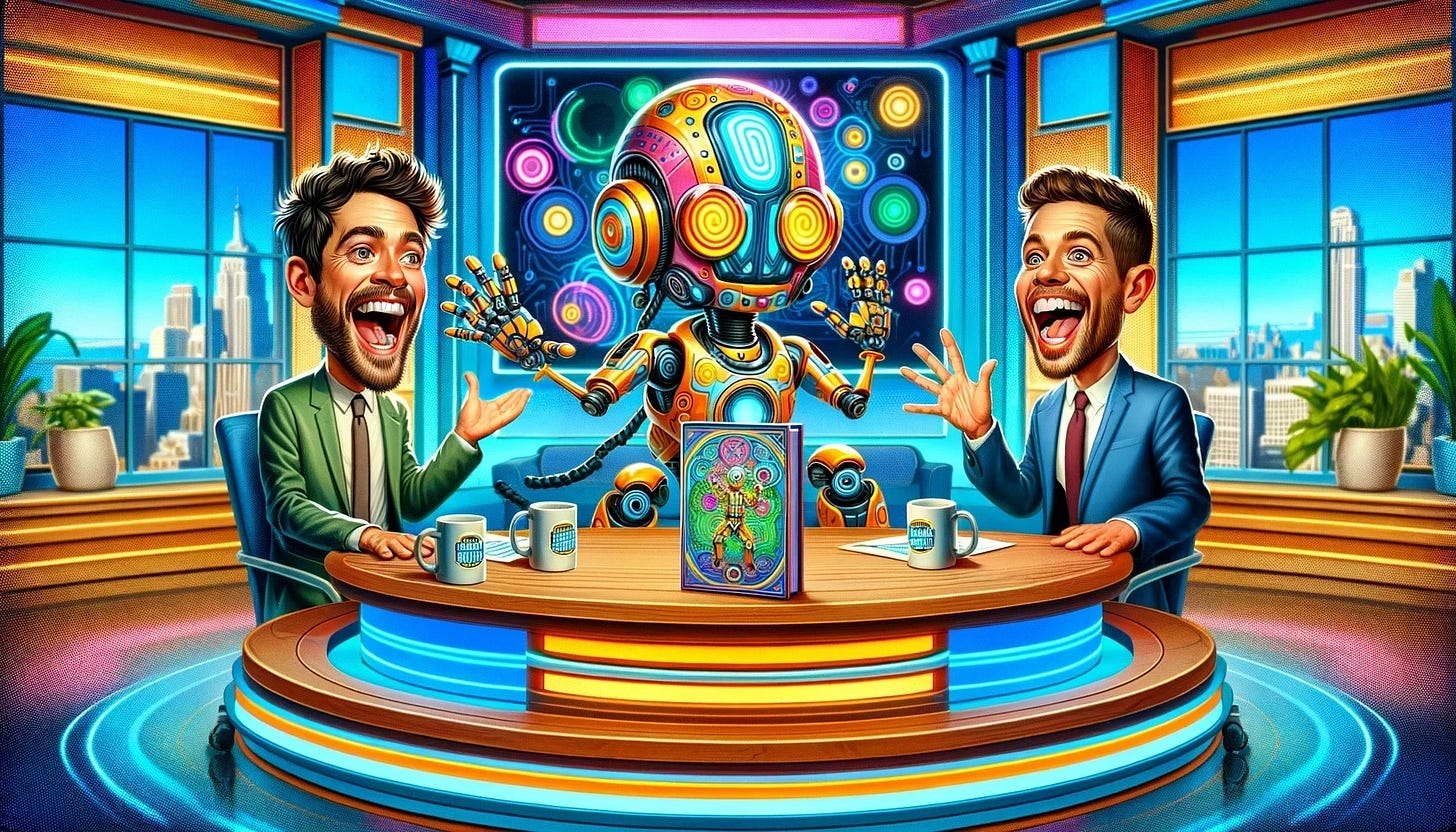Welcome to the first part of our three-part series examining how artificial intelligence is reshaping the media landscape, altering how we watch, read, and listen. When I launched this newsletter, which focuses on the role of technology in media, I knew AI would be a key topic. However, the significant impact of AI made me postpone discussing it until I could thoroughly explore its implications with a dedicated series. In this series, we will look at how AI influences our media consumption habits across different platforms. This week, we're delving into the publishing industry to explore how AI-generated imitations of popular books are saturating the market.
In February, Savannah Guthrie, esteemed co-host of NBC’s "Today Show," unveiled her new religious memoir, "Mostly What God Does," to an eager public. You can imagine her astonishment when she learned at several book events that fans were purchasing a companion workbook they found on Amazon along with her memoir. Ideally, this should have been a cause for celebration; her readers were so engaged that they sought additional materials to enhance their experience of her spiritual insights. However, there was a significant hiccup: no such workbook had ever been created, at least not with the endorsement of Guthrie or her publishers. This revelation prompted her to take to her Instagram account and declare: “PSA!!! These "workbooks" are not real and not by me! Watch out.”
Savannah Guthrie isn't the only one. Most popular celebrity memoirs have a knockoff version floating around on Amazon, hoping someone will purchase it, thinking it's the authentic edition. These knockoff versions aren't a new problem, as scam versions of books have existed on Amazon for years; however, with the rise of AI chatbots, it's become increasingly accessible and profitable to create and distribute these books.
Chatbots removed one of the most significant hurdles to creating these books: time. The typical return on investment of a published book is low. An author spends a year or two researching and writing it. Then, a team of professionals from the publisher offers multiple rounds of edits before it's handed off to marketing to establish a sales campaign, which usually involves a book tour. Considering that only a fifth of Americans read ten or more books a year, the audience for that type of time commitment is limited.
Most non-fiction authors have another income stream, or they are using the book as a tool for promotion, which is why every presidential candidate starts their run with a book release. For fiction authors, the motivations behind their work can range from the intrinsic joy of writing to the desire to see their words translated onto the screen. The bottom line is nobody becomes an author for the lucrative and consistent paycheck.
However, if quality is unimportant and you want to produce something in a day instead of two years, then you can use AI to write up a book, design the cover, and have it ready to post on Amazon's marketplace within a day. Multiple authors have pushed back on this, calling for Amazon to do more to weed out these bad actors. Kara Swisher, while promoting her new memoir, titled Burn Book: A Tech Love Story, called out the current CEO of Amazon by name, saying, "So I, of course, put them all together. And I sent Andy Jassy a note and said, what the fuck? You're costing me money.” Swisher is right to call out Amazon by name as they sell roughly forty percent of all books in America, making them the dominant player in the publishing industry.
Amazon has changed its policy. Now, individuals can only post up to three books per day via the direct publishing service. The company's laughable policy change exposes its apparent nonchalance towards the flood of questionable content on its marketplace.
When the slickness of AI, capable of aping an author's style with precision, collides with the relentless profit-chasing algorithms of an e-commerce giant, we’re left having a hard time telling if the book we just purchased contains the prose of Hemingway or R2-D2.





